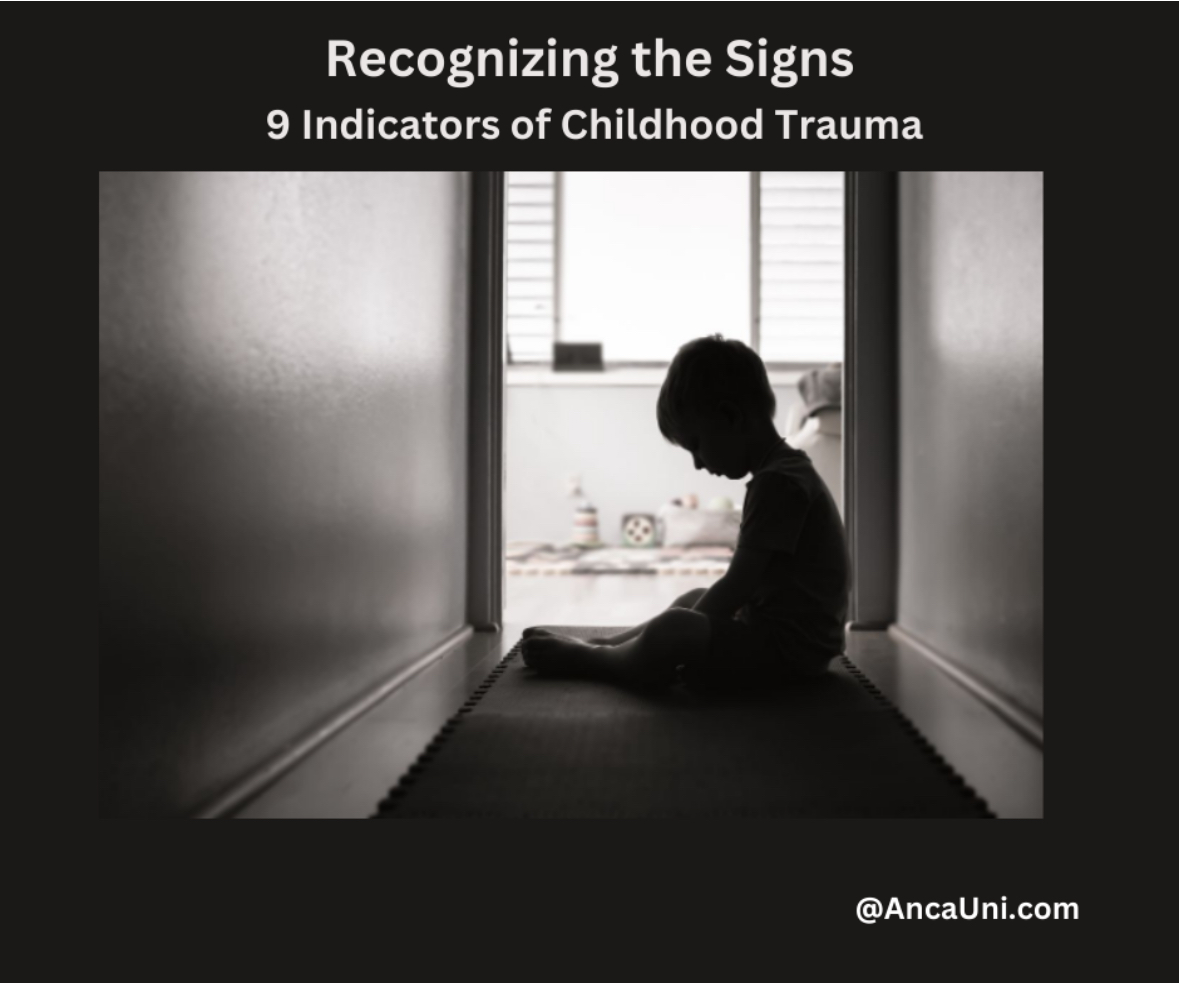
Childhood trauma can leave deep emotional scars that linger into adulthood, shaping our thoughts, behaviors, and relationships. However, identifying these signs can be challenging, as they often manifest in subtle ways. In this post, we’ll explore nine common indicators that may suggest you’re dealing with unresolved childhood trauma.
1. Difficulty forming relationships: Struggling to trust others, maintaining emotional intimacy, or feeling disconnected in relationships can be a sign of attachment issues stemming from childhood trauma.
2. Chronic stress or anxiety: Experiencing persistent feelings of anxiety, hypervigilance, or a constant sense of impending danger may indicate unresolved trauma responses ingrained from childhood experiences.
3. Low self-esteem: Feelings of worthlessness, self-doubt, or a pervasive sense of shame can be linked to negative beliefs formed during traumatic events in childhood.
4. Self-destructive behaviors: Engaging in risky behaviors such as substance abuse, self-harm, or reckless activities may serve as coping mechanisms to numb emotional pain from past trauma.
5. Difficulty regulating emotions: Struggling to manage intense emotions, experiencing frequent mood swings, or feeling overwhelmed by seemingly minor stressors may signal unresolved trauma affecting emotional regulation.
6. Avoidance of triggers: Going to great lengths to avoid situations, people, or places that remind you of traumatic events from childhood can be a subconscious effort to protect yourself from re-experiencing distressing memories.
7. Memory gaps or dissociation: Difficulty recalling specific details or periods of time from childhood, as well as experiencing dissociative episodes or feeling disconnected from reality, are common responses to trauma.
8. Physical symptoms: Chronic health issues such as headaches, gastrointestinal problems, or unexplained aches and pains may be somatic manifestations of unresolved childhood trauma.
9. Perfectionism or control issues: Striving for perfection, rigidly controlling your environment, or feeling a constant need to be in control can be coping mechanisms developed in response to childhood trauma to create a sense of safety and predictability.
If you resonate with any of these signs, know that you’re not alone, and healing is possible. Seeking support from a therapist trained in trauma-informed care can provide invaluable guidance and tools for processing and integrating past experiences, ultimately empowering you to reclaim your life and cultivate greater resilience and well-being.
Remember, recognizing the signs is the first step towards healing. You deserve to live a life free from the constraints of childhood trauma, and with support and compassion, you can embark on a journey towards healing and wholeness.
